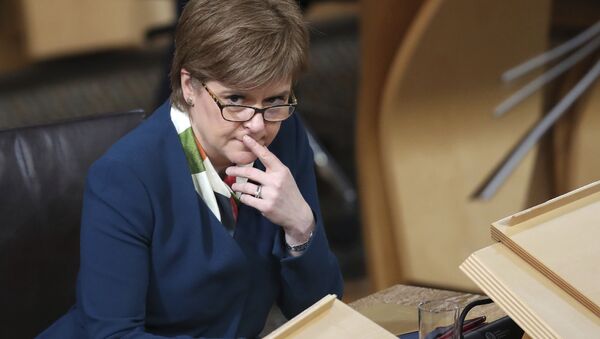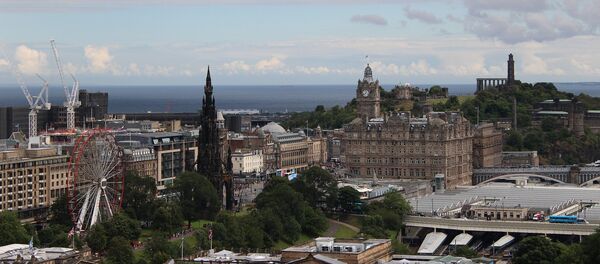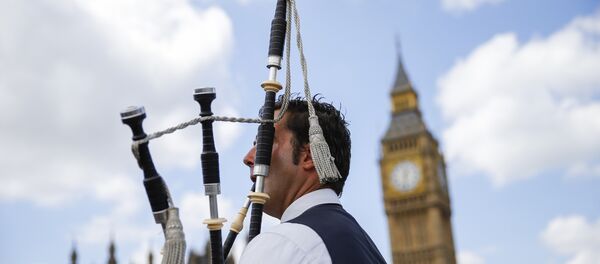"We could actually be looking not only at Britain being no longer the member of the EU, but also Scotland not being the member of the UK," said Wight, host of Radio Sputnik's Hard Facts. He noted that this will be the end of a union that has existed since 1707, when the Acts of the Union treaty, between England and Scotland, was signed.
After Tony Blair became UK Prime Minister in 1997, one of his first acts was the creation of the so-called Devolved Governments in Scotland, Wales and Ireland. According to Wight, the Devolved Governments are effectively local parliaments, with limited autonomy, including healthcare, housing, and some taxation, but excluding matters of national importance, such as foreign policy and defense. In the case of Scotland, the UK central government reserved the matter of Scottish independence for itself, under the "Section 30 of the Scotland Act." Scotland cannot declare itself independent from the UK, unless the UK central government agrees.
"Theresa May has a right constitutionally to block it and say no," Wight detailed. "But if she were to do that, she would make Scotland ungovernable, and will commit political suicide, because the support for Scottish independence will go through the roof."
Apparently, May and Sturgeon have entered a standoff, a situation that Wight described as only being ended by the person "who blinks first." If Sturgeon is to win, she must secure the referendum victory.
But to do that Sturgeon must first secure assurances from Brussels that Scotland's EU membership will be automatically extended, should it succeed with the independence referendum.
"But… the European Commission spokesperson just came out and said that would Scotland succeed [with the referendum], it will have to reapply like any other fugitive member state, and it will not have any special privileges. That will be a big impediment for the referendum vote, because without that assurance, people will wonder how Scotland is going to survive economically."
With all the ‘centrifugal' forces in the EU, one could imagine that Europe would go out of its way to provide privileges for fugitive member states, Wight observed.
Without no assurances from the EU, Sturgeon might win political points by using the independence referendum as a gesture of "pure democracy," claiming that her hand has been forced by the will of the people, and by the fundamentally-changed circumstances, letting people cast their vote even if she herself does not believe it is going to work, Wight noted.
Wight observed that Sturgeon is gambling on the success of this vote, otherwise she will likely have to resign in a similar fashion to the resignation of First Minister Alex Salmond after the failure of the 2014 Scottish independence vote.




